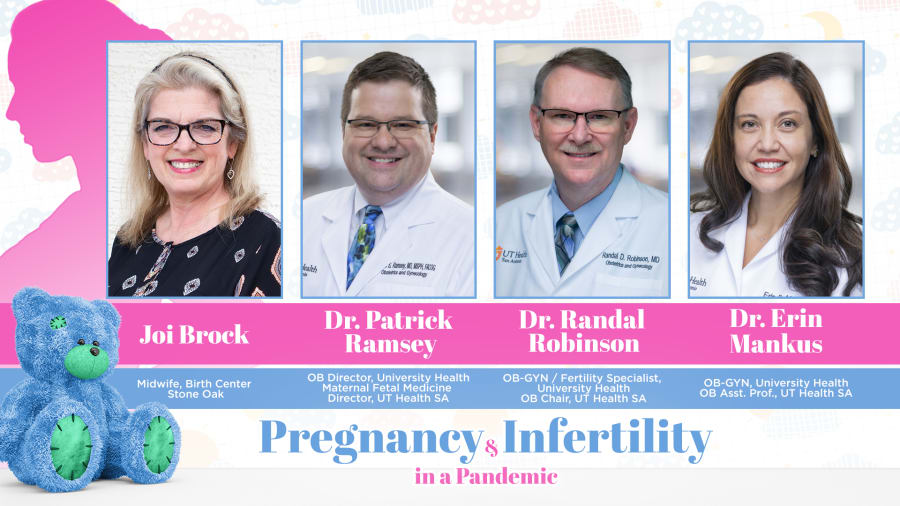SAN ANTONIO – For a couple of weeks, KSAT has asked viewers for their questions about being pregnant during this pandemic.
For many parents-to-be, COVID-19 has turned the celebration into isolation, and it’s been tough on them.
Abigail Vega Keller is 16 weeks pregnant with her first child and feels grateful for many things, including the first trimester without morning sickness.
“I’ve been at work with so much energy,” she said with a laugh.
RELATED: Pandemic fuels stress for families dealing with infertility; support widely available
Work is one of the only places Keller goes to since she’s worried about getting COVID-19. She said having her first pregnancy during a pandemic has been hard at times.
“I was more concerned about my friends and family wanting to come around or be with us, so we’ve had to be careful and monitor that,” Keller said.
She and her husband, Henry, have large families, so it’s been hard to stay away.
“Also, doing the doctor visits has been just going by myself instead of having that experience to share with my spouse,” Keller said. “It’s kind of been a little scary for me.”
Keller said it’s the added unknowns that worry her.
“Just weary about the future, like, what’s labor going to look like? Am I going to be alone?” she questioned.
Many KSAT viewers have those same questions about hospital protocols for visitors during delivery.
“We allow one visitor to come with them during labor and delivery or during their admission,” said Dr. Patrick Ramsey, the medical director for inpatient OB services at University Health and the director of the Maternal-Fetal Medicine Fellowship Program at UT Health San Antonio.
Ramsey said the major San Antonio hospital systems stay in touch and have mainly the same protocols.
“If mom would test positive, that (visitor) is still able to come into the hospital. They just get screened with temperature checks. They do not get testing themselves, but they are required to stay in the room with the patient for the entire duration of their stay, and if they leave, they’re not able to come back,” Ramsey said, explaining the protocol at University Health.
It’s definitely a different experience, but Keller said being informed ahead of time makes it all easier.
“Just taking it one day at a time,” she said.
On Wednesday, March 31, KSAT anchor Courtney Friedman will host a livestream town hall at 2 p.m. called “Pregnancy and Infertility in a Pandemic,” available on KSAT.com, the KSAT TV app, or anywhere you stream.
If you have any questions for our panel of experts, you can still submit them now below:





